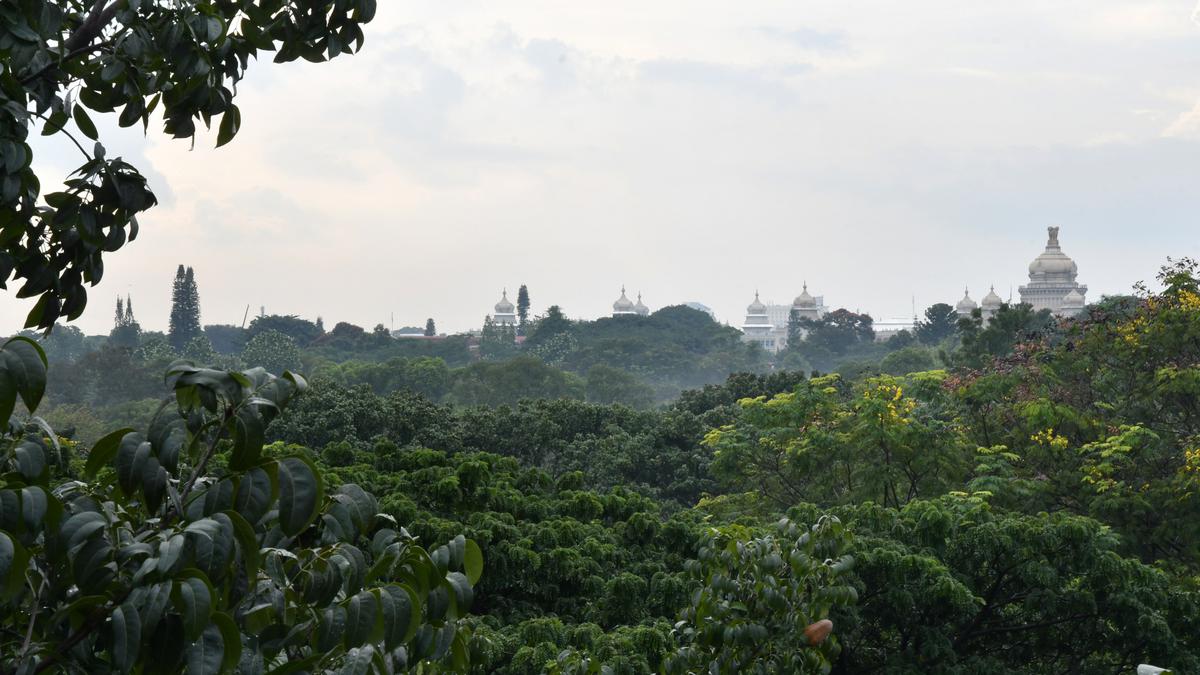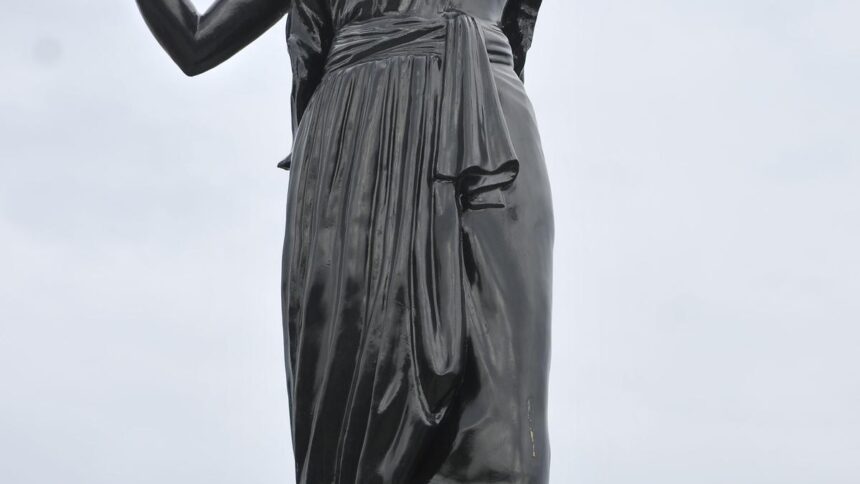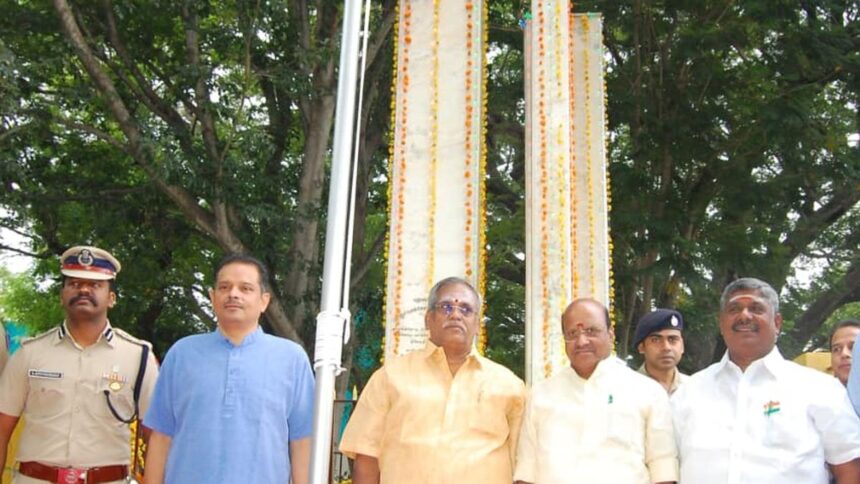Vinay Parameshwarappa has always thought of Cubbon Park as a special place, “one of the last few green spaces where you can leisurely walk, without worrying that someone will run you over,” says the founder of Gully Tours, an experiential tour company. Not surprisingly, Cubbon Park was at the heart of Colonial Crawl, among the first walks that his company curated in the city. “The colonial story is such an important one in the evolution of Bengaluru, and Cubbon Park was the link between the Bengaluru Pete and its Cantonment area,” he says. “We had wanted to explore this neighbourhood.”
According to Vinay, this “lovely” walk through Cubbon Park was extremely popular, drawing students, families, long-time Bengaluru residents, migrants, as well as visitors to the city; in short, anyone who was “curious as well as conscious” about Bengaluru. “It was something people looked forward to.”
The reason Vinay talks about the walk in the past tense is that the Horticulture Department of Karnataka has recently halted private walking tours. He and several others hope that this is a temporary measure and that the issue will soon be resolved. “We are currently in conversation with the department, which is trying to talk to different players and come up with a policy,” he says. “I’m sure something positive will soon come out.”

Cubbon Park in Bengaluru on a Sunday morning
| Photo Credit:
SUDHAKARA JAIN
Another person, who runs heritage walks in Bengaluru in several locations, including, until recently, Cubbon Park, too, hopes that private heritage walks will be allowed again soon in the park. “It is accessible, it is beautiful, and it is a public space that should be enjoyed in multiple ways,” says this person, who prefers not to be named. In his opinion, there should not be restrictions on educational or cultural activities in a public space. “We just walk through the park, without occupying much space,” he says. “I feel heritage walks should just be allowed to be.”
This development is the latest in a series of new rules that frequent visitors to the park are upset about. According to many of them, Cubbon Park’s location, safety, proximity to public transport facilities and overall atmosphere make it an ideal public place for people to convene. And placing too many restrictions often impedes individual freedoms, they suggest.
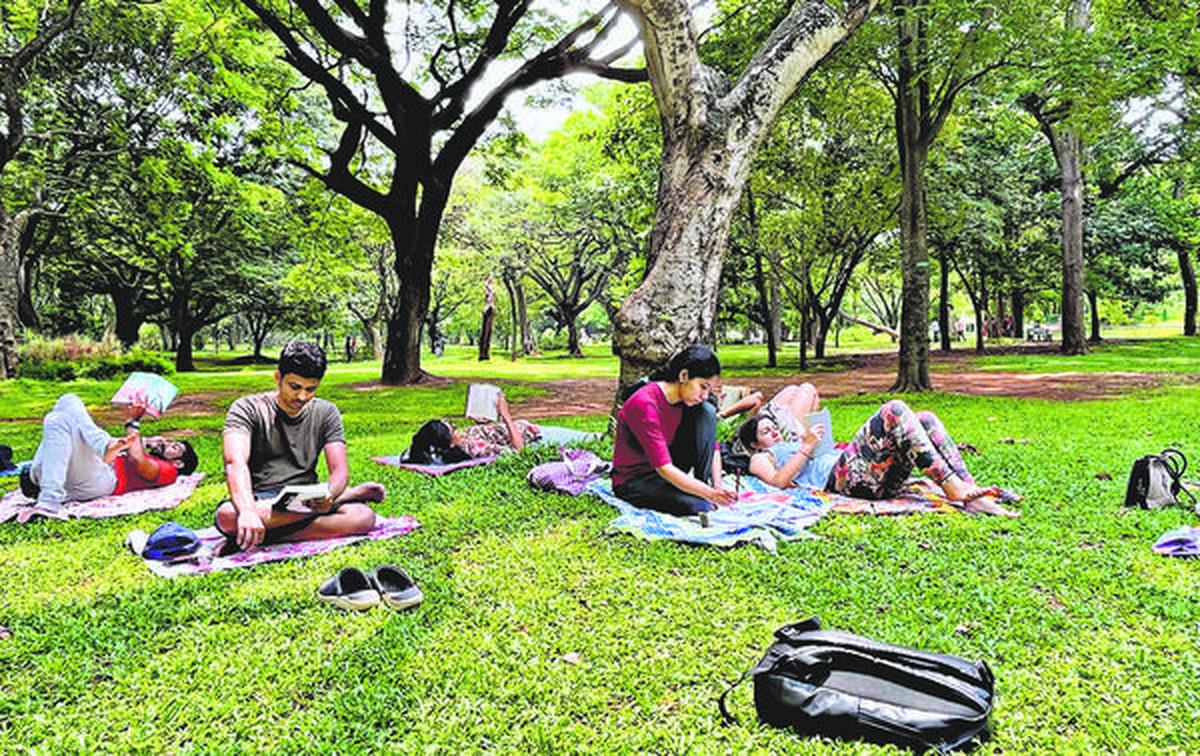
Many of the activities under fire at Cubbon Park seem to be targeting younger people
| Photo Credit:
Special Arrangement
One of them is Preksha Sharma, the co-founder of the Cubbon Book Club (CBC), who chose the park as a venue when the book club was started in May 2022. “I think the park is very central to the existence of Bengaluru,” she says, comparing it to other iconic urban attractions like Central Park in New York and Marine Drive in Mumbai. “It is a huge part of what the city is, not only for locals but even for people who have moved or visit here.”
In the recent past, however, rules around Cubbon Park — a regular haunt of walkers, sketchers, birdwatchers, yoga enthusiasts, badminton and frisbee players and readers — appear to be tightening, as various media reports indicate.
Preksha, who is not a fan of the “unnecessary policing” that seems to recur in Cubbon Park, feels that many of the restrictions are more likely to affect younger people. “Many of the activities permitted, like blood donation drives and walking are more friendly and favourable to the people who make the rules,” she says, pointing out that it is not only the commercial activities that have been banned, but also book clubs and other gatherings, which involve more than 20 people now require permission.
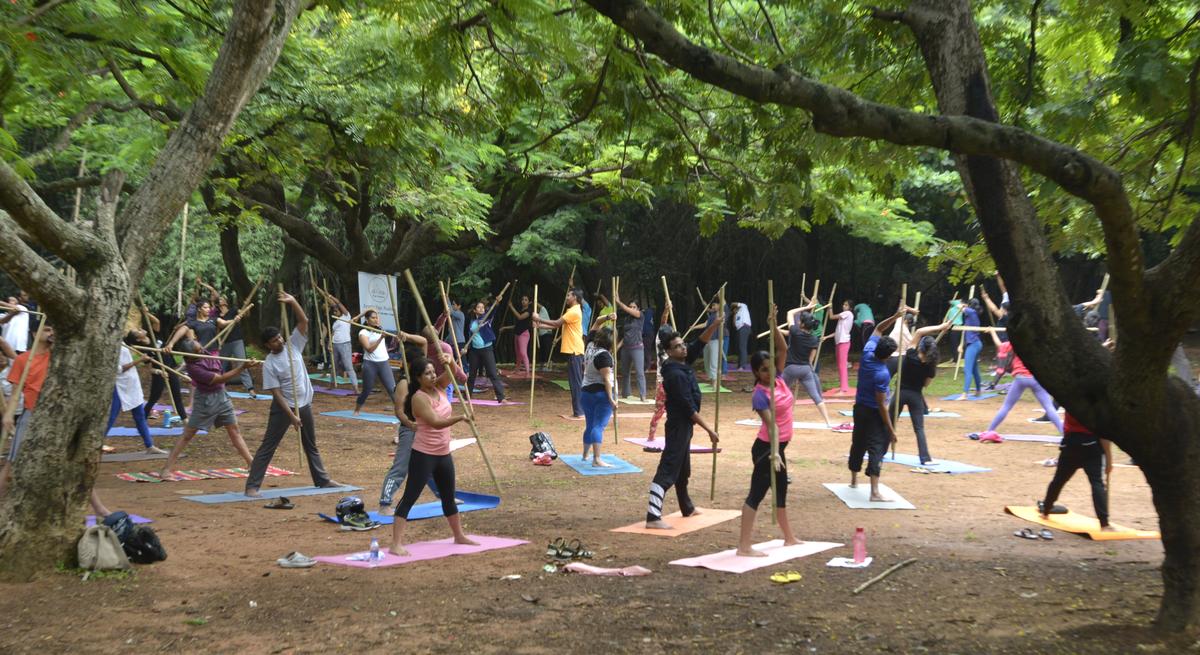
Yoga enthusiasts take part in a group yoga session
| Photo Credit:
BHAGYA PRAKASH
Another frequent visitor to Cubbon Park, who prefers not to be named, feels that having so many rules in the park is “bizarre” because “the whole point of having a park like Cubbon in the city is that it is for the public.” According to her, while there is a need to enforce rules around things that are a nuisance, such as littering or walking with an unleashed dog, the list of don’ts in the park appears to be never-ending. “There are so few common spaces left and the more rules and regulations you put in, the more opaque it becomes.”
Kusuma G, Deputy Director of the State Horticulture Department, on the other hand, defends the restrictions that have been imposed, pointing out that since Cubbon Park, like Lal Bagh, comes under the Karnataka Government Parks (Preservation) Act, 1975, specific rules need to be followed, including the one stating that no commercial activities are allowed in the park. While the Horticulture Department has recently launched a guided walking tour in Cubbon Park, priced at ₹200, discussions are still ongoing regarding private players, who have been conducting walks here for a while. “We are currently preparing some guidelines, which will be helpful for everyone,” she says. “It is in the process, but it will take some time.”
A security guard on patrol at Cubbon Park cautions people to keep the park clean, not to go into the bush due to the snakes and to maintain distance while sitting around the trees or on the benches
| Photo Credit:
MURALI KUMAR K
Priya Chetty-Rajagopal, founder of the citizen-led initiative Heritage Beku, which has been at the forefront of Cubbon Park’s preservation and has been regularly organising many free public events in the park, too, feels that the Horticulture Department’s stand has some merit. “As a public commons, Cubbon Park is a powerful magnet, but it’s also a magnet for free showcasing of commercial events, which can be tough,” she says. In a city of close to 1.4 crore people, this often leads to the park getting “very, very stressed,” she says. “You should come in on Monday and see the trash.”
Priya, who is all for having heritage walks in Cubbon Park since “it is a very important way of deepening your relationship with a space,” intends to ensure that there is an ongoing discussion of this issue. “But give the Cubbon Park authorities some breathing time.”
Published – August 19, 2025 10:43 am IST








